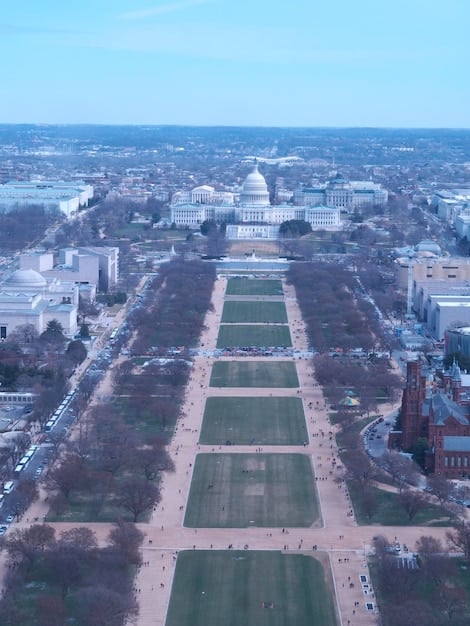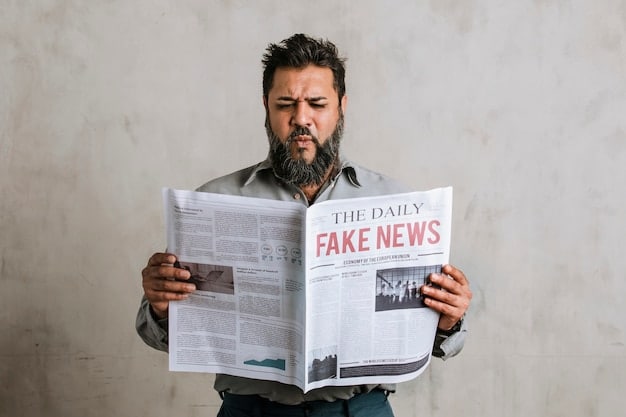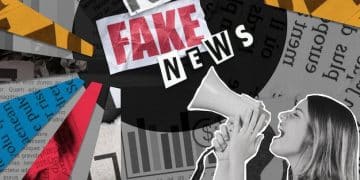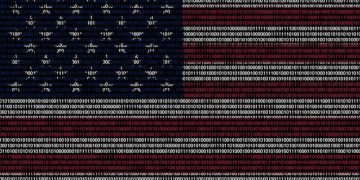US Government Efforts to Protect Elections from Foreign Interference

The US government employs various strategies to protect elections from foreign interference, including strengthening cybersecurity for voting systems, monitoring and countering disinformation campaigns, and imposing sanctions on individuals and entities involved in meddling.
The integrity of US elections is a cornerstone of democracy, but it faces persistent threats from foreign actors seeking to undermine the process. How is the US government protecting against foreign interference in elections? This involves a multi-layered approach, encompassing technological defenses, intelligence operations, and legal frameworks designed to safeguard the electoral system.
Understanding the Threat of Foreign Interference
Foreign interference in US elections is not a new phenomenon, but its sophistication and impact have grown significantly in recent years. This interference can take many forms, from spreading disinformation to directly targeting voting infrastructure. Understanding these threats is the first step in developing effective countermeasures.
Historical Context of Foreign Meddling
While recent attention has focused on digital interference, foreign attempts to influence US elections have a long history. Understanding past efforts provides valuable context for current challenges. The US government has long been aware of these attempts, but the digital age has amplified the scale and scope of potential impacts.
Modern Forms of Election Interference
Today, foreign interference often involves sophisticated cyber operations, social media manipulation, and disinformation campaigns designed to sow discord and erode public trust in the electoral process. These methods are constantly evolving, requiring continuous adaptation of defensive strategies.
- Cyberattacks on voting systems and election infrastructure
- Disinformation campaigns targeting specific demographics
- Use of social media to spread propaganda and divisive content
- Financial support to political campaigns or organizations
Combating these threats requires a coordinated effort involving government agencies, private sector companies, and the public. It’s crucial to stay informed and vigilant against potential manipulation.
In conclusion, recognizing the historical context and modern forms of foreign interference is vital for building robust defenses. By understanding the threat landscape, the US government can better protect the integrity of its elections.
Strengthening Cybersecurity for Voting Systems
Cybersecurity is a critical component of election security. The US government, in collaboration with state and local election officials, is working to strengthen the defenses of voting systems against potential cyberattacks. This includes implementing security best practices, conducting regular audits, and providing training to election personnel.

The Role of the Cybersecurity and Infrastructure Security Agency (CISA)
CISA plays a central role in protecting US election infrastructure. It provides resources, expertise, and threat intelligence to state and local election officials, helping them to identify and mitigate vulnerabilities in their systems.
Best Practices for Securing Voting Machines
Securing voting machines involves a multi-faceted approach, including physical security measures, software updates, and regular testing. These measures are designed to prevent tampering and ensure the accuracy of vote counts.
- Regularly updating software to patch vulnerabilities
- Implementing physical security measures to prevent tampering
- Conducting pre- and post-election audits to verify results
- Using paper ballots as a backup in case of electronic failures
These best practices are essential for maintaining the integrity of the voting process and ensuring that every vote is accurately counted. Federal agencies, in coordination with state and local governments, continue to refine these practices to address emerging threats.
In summary, cybersecurity is paramount in protecting voting systems from foreign interference. CISA’s role and the implementation of best practices for securing voting machines are crucial steps in safeguarding US elections.
Monitoring and Countering Disinformation Campaigns
Disinformation campaigns are a common tactic used by foreign actors to influence US elections. The US government is actively monitoring these campaigns and working to counter their effects through public awareness initiatives, partnerships with social media companies, and law enforcement actions.
Identifying and Tracking Disinformation
Identifying disinformation involves tracking the spread of false or misleading information across various platforms. Advanced analytics and human intelligence are used to detect coordinated campaigns and identify their sources.
Working with Social Media Companies
The US government collaborates with social media companies to remove or label disinformation content and to promote accurate information. This partnership aims to reduce the reach of malicious actors and ensure that users have access to reliable sources.

- Removing fake accounts and bot networks
- Labeling or fact-checking misleading content
- Promoting media literacy and critical thinking
- Improving algorithms to detect and prioritize accurate information
These efforts are crucial in mitigating the impact of disinformation campaigns and promoting a more informed electorate. Social media platforms have a responsibility to protect their users from manipulation and to ensure the integrity of the information shared on their networks.
In conclusion, monitoring and countering disinformation campaigns is a key aspect of protecting US elections from foreign interference. By identifying and tracking disinformation, and by working with social media companies, the US government is working to mitigate the impact of these malicious efforts.
Imposing Sanctions and Legal Consequences
The US government uses sanctions and legal consequences to deter foreign interference in US elections. These measures target individuals and entities involved in meddling, sending a clear message that such actions will not be tolerated.
Targeting Individuals and Entities Involved in Meddling
Sanctions can be imposed on individuals and entities that engage in activities such as cyberattacks, disinformation campaigns, or financial support for foreign interference. These sanctions can include asset freezes, travel bans, and restrictions on doing business with US companies.
Legal Frameworks and Statutes Used
Several legal frameworks and statutes are used to prosecute foreign interference in US elections. These include laws prohibiting cybercrime, espionage, and foreign agent activity. Prosecuting these offenses sends a strong deterrent message to potential meddlers.
- The Computer Fraud and Abuse Act (CFAA)
- The Foreign Agents Registration Act (FARA)
- Executive orders authorizing sanctions for election interference
- Criminal statutes related to espionage and conspiracy
These legal tools provide the government with the authority to investigate and prosecute those who attempt to undermine US elections. Effective enforcement of these laws is critical to deterring future interference.
In summary, imposing sanctions and legal consequences is a vital component of the US government’s efforts to protect elections from foreign interference. By targeting individuals and entities involved in meddling and by utilizing appropriate legal frameworks, the government aims to deter such actions and safeguard the integrity of the electoral process.
Intelligence Gathering and Analysis
Intelligence gathering and analysis are essential for understanding and responding to foreign interference in US elections. The US intelligence community plays a critical role in identifying threats, assessing risks, and providing timely information to policymakers.
The Role of the Intelligence Community
The intelligence community, including agencies like the CIA, FBI, and NSA, is responsible for gathering intelligence on foreign activities that could potentially interfere with US elections. This includes monitoring cyber threats, disinformation campaigns, and foreign influence operations.
Sharing Information with Election Officials
Sharing timely and accurate information with state and local election officials is crucial for enabling them to take appropriate security measures. The intelligence community works closely with election officials to provide them with the information they need to protect their systems and processes.
- Providing threat briefings and intelligence assessments
- Sharing indicators of compromise and best practices
- Collaborating on incident response and mitigation
- Conducting joint exercises and training
Effective information sharing ensures that election officials are aware of potential threats and can take proactive steps to address them. Collaboration between the intelligence community and election officials is essential for maintaining election security.
In conclusion, intelligence gathering and analysis are critical for understanding and responding to foreign interference in US elections. The intelligence community’s role in identifying threats and sharing information with election officials is essential for safeguarding the electoral process.
Public Awareness and Media Literacy
Public awareness and media literacy are vital components of protecting US elections from foreign interference. Educating the public about the threat of disinformation and promoting critical thinking skills can help to reduce the impact of malicious campaigns.
Educating the Public About Disinformation
Public awareness campaigns can help to educate citizens about the tactics used by foreign actors to spread disinformation. These campaigns can provide tips for identifying fake news, verifying information sources, and avoiding the spread of misleading content.
Promoting Critical Thinking Skills
Promoting critical thinking skills can empower individuals to evaluate information more effectively and to resist manipulation. This includes teaching people how to identify biases, analyze evidence, and assess the credibility of sources.
- Developing educational resources and training programs
- Partnering with schools and community organizations
- Using social media to promote media literacy
- Encouraging fact-checking and verification
By empowering citizens to think critically and to evaluate information carefully, the US government can help to build a more resilient electorate that is less susceptible to foreign interference.
In summary, public awareness and media literacy are essential for protecting US elections from foreign interference. By educating the public about disinformation and promoting critical thinking skills, the US government can help to mitigate the impact of malicious campaigns and safeguard the integrity of the electoral process.
International Cooperation and Diplomacy
International cooperation and diplomacy are crucial for addressing the global threat of foreign interference in elections. The US government works with allies and partners to share information, coordinate responses, and promote democratic norms.
Sharing Information with Allies
Sharing information with allies about foreign interference activities can help to strengthen collective defenses and coordinate responses. This includes sharing threat intelligence, best practices, and lessons learned from past incidents.
Coordinating Responses to Foreign Interference
Coordinating responses to foreign interference with allies can help to amplify the impact of sanctions, law enforcement actions, and other measures. This includes working together to investigate and prosecute those involved in meddling.
- Establishing joint task forces to investigate cyber threats
- Sharing information on disinformation campaigns
- Coordinating sanctions against individuals and entities
- Promoting democratic norms and election integrity
Through international cooperation and diplomacy, the US can work with its allies to address the global threat of foreign interference in elections and to promote democratic values around the world.
In conclusion, international cooperation and diplomacy are essential for addressing the global threat of foreign interference in elections. By sharing information with allies and coordinating responses, the US government can strengthen collective defenses and promote democratic norms.
| Key Point | Brief Description |
|---|---|
| 🛡️ Cybersecurity | Protecting voting systems from cyberattacks. |
| 📢 Countering Disinformation | Monitoring and neutralizing false information campaigns. |
| ⚖️ Legal Consequences | Sanctions and prosecutions for election meddling. |
| 🤝 International Cooperation | Working with allies to address the threat. |
Frequently Asked Questions
▼
Foreign interference includes any actions by foreign governments or entities to influence US elections, such as spreading disinformation, hacking voting systems, or providing illegal campaign funding.
▼
CISA (Cybersecurity and Infrastructure Security Agency) is responsible for protecting US election infrastructure from cyber threats. It provides expertise, resources, and threat intelligence to state and local election officials.
▼
Disinformation campaigns are countered through public awareness initiatives, partnerships with social media companies to remove or label false content, and promoting media literacy to help citizens identify fake news.
▼
Legal actions include imposing sanctions on individuals and entities involved in election interference and prosecuting offenses under laws such as the Computer Fraud and Abuse Act and the Foreign Agents Registration Act.
▼
International cooperation involves sharing information with allies about foreign interference activities and coordinating responses to those activities. This helps strengthen collective defenses and promote democratic norms globally.
Conclusion
Protecting US elections from foreign interference requires a comprehensive and multi-faceted approach. By strengthening cybersecurity, countering disinformation, imposing sanctions, gathering intelligence, promoting public awareness, and fostering international cooperation, the US government is working to safeguard the integrity of the electoral process and ensure that the will of the American people is not undermined by foreign actors.





